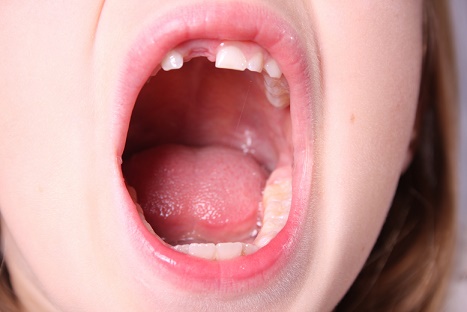What Causes Adult Teeth to Fail to Grow?
 People are born toothless before a set of teeth begins coming in while they are still babies. The primary or deciduous teeth eventually give way for the larger adult set of teeth when the mouth has grown enough to accommodate them.
People are born toothless before a set of teeth begins coming in while they are still babies. The primary or deciduous teeth eventually give way for the larger adult set of teeth when the mouth has grown enough to accommodate them.
Mammals are born toothless since they suckle while young whereas the onset of adult teeth enables change of diet as they mature.
Therefore, what will happen when people get their deciduous teeth as babies and the adult teeth fail to grow? Are the tiny deciduous teeth retained for life?
A number of conditions can make an individual fail to lose one or more of their primary teeth. As dentists we have ways of dealing with these conditions and it may be dependent on if the permanent teeth are formed but stuck below the gum or if they are missing all together.
When a Tooth is Slow to Grow
It is not easy to predict the precise lifespan of baby teeth but each one needs to last for ten years or more until the adult replacement arrives.
When an adult tooth fails to arrive on time it means that the baby tooth will need to last a bit longer. Your dentist will need to pay greater attention to a primary tooth lasting beyond its expectancy to ensure it is healthy, but eventually the baby tooth will fail requiring replacement.
Where the permanent teeth are taking longer than normal to develop, the dentist will initially want to adopt a wait and see approach. The best-case scenario is the permanent teeth are perfectly developed and are slow to emerge. If the tooth still fails to appear it can often be guided through with orthodontic (brace) treatment.
When a Tooth Doesn’t Form
When a tooth fails to form totally it isn’t there to coax through. This is called tooth agenesis.
Tooth agenesis is often a genetically inherited problem. Genes that lead to development of one or more permanent teeth are absent from birth. Tooth agenesis may range from severity from hypodontia (five or less missing teeth) to oligodontia (more than six missing permanent teeth).
Oligodontia is commonly seen in people with genetic conditions such as: Down Syndrome, Reiger Syndrome and Ectodermal Dysplasia.
The Solution
Your dentist will propose that you get a dental implant or a fixed bridge in the case of a single missing permanent tooth. For multiple missing teeth, you can get dental implants, removable partial dentures or fixed bridges.
Read the full story here
Free Consultation
To download a voucher for a consultation to discuss any of the issues covered; click below.
Free Consultation







